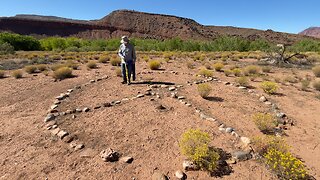Free Money Everywhere in CoD Warzone Plunder
Looting, also referred to as sacking, ransacking, plundering, despoiling, despoliation, pillaging, and marauding, is theft, or taking of goods by force, in the midst of a military, political, or other social crisis, such as war, natural disaster (where law and civil enforcement are temporarily ineffective), or rioting. The proceeds of all these activities can be described as booty, loot, plunder, spoils, or pillage.
In armed conflict, pillage is prohibited by international law, and constitutes a war crime.
Looting by a victorious army during war has been common practice throughout recorded history. Foot soldiers viewed plunder as a way to supplement an often meager income and transferred wealth became part of the celebration of victory. On higher levels, the proud exhibition of loot formed an integral part of the typical Roman triumph, and Genghis Khan was not unusual in proclaiming that the greatest happiness was "to vanquish your enemies ... to rob them of their wealth".
In warfare in ancient times, the spoils of war included the defeated populations, which were often enslaved. Women and children might become absorbed into the victorious country's population. In other pre-modern societies, objects made of precious metals were the preferred target of war looting, largely because of their easy portability. In many cases looting offered an opportunity to obtain treasures that otherwise would not have been obtainable. Since the 18th century, works of art have increasingly become a popular target. In the 1930s, and even more so during World War II, Nazi Germany engaged in large-scale and organized looting of art and property.
Looting, combined with poor military discipline, has occasionally been an army's downfall - troops who have dispersed to ransack an area may become vulnerable to counter-attack. In other cases, for example the Wahhabi sack of Karbala in 1801 or 1802, loot has financed further victories. Not all looters in wartime are conquerors; the looting of Vistula Land by the retreating Imperial Russian Army in 1915 was among the factors sapping the loyalty of Poles to the Russian Emperor. Local civilians can also take advantage of a breakdown of order to loot public and private property, as in events which took place at the National Museum of Iraq in the course of the Iraq War in 2003. Tolstoy's novel War and Peace describes widespread looting by Moscow's citizens before Napoleon's troops entered the city in 1812, and by French troops elsewhere.
In 1990 and 1991, during the Gulf War, Saddam Hussein and troops damaged a lot of Kuwaiti and Saudi infrastructure. They also stole from private companies and homes. In April 2003, looters broke into the National Museum of Iraq and thousands of artefacts remain missing.
Syrian conservation sites and museums were looted during the Syrian civil war with items being sold on the international black market. Reports from 2012 suggested that these antiquities were being traded for weapons by the combatants.
-
 11:07:18
11:07:18
Lorespade
8 months agoLorespade's Adventure In No Man's Sky
21 -
 LIVE
LIVE
Fed Reacts
6 hours agoFed Explains The Disappearance of Madeleine McCann
2,549 watching -
 2:24:44
2:24:44
vivafrei
15 hours agoEp. 211: Trump Trial, Jack Smith, Tyson Loses, Ukraine, Russia V. Google & MORE!
103K247 -
 3:02:10
3:02:10
Due Dissidence
15 hours agoSeinfeld Show INTERRUPTED by Protests, Police CRACK DOWN on Nakba March, Cardi B TRASHES Biden
43.7K54 -
 15:48
15:48
PARAGRAPHIC
15 hours agoThe Largest Reptile Sanctuary in the United States | PARAGRAPHIC
19.2K9 -
 27:45
27:45
Adam Does Movies
11 hours ago'The Strangers: Chapter 1' Is Hot Garbage - SPOILERS!
12.7K1 -
 8:33
8:33
MichaelBisping
1 day agoBISPING Reacts: "Tyson Fury COULDN'T Keep The Pace!" | Tyson Fury vs Oleksandr Usyk Reaction
17.4K8 -
 9:56
9:56
Misha Petrov
11 hours agoTragic Leftist Transformations
22.8K33 -
 31:48
31:48
CarlCrusher
11 hours agoCurse of the Skinwalker | The Ancient Mystery of Magic Mesa - Full Documentary | Part 2
20.2K9 -
 1:38
1:38
AnthiBozoviti
18 hours agoImprovisation on Ancient Greek Lyre | Anthi Bozoviti
18.7K9